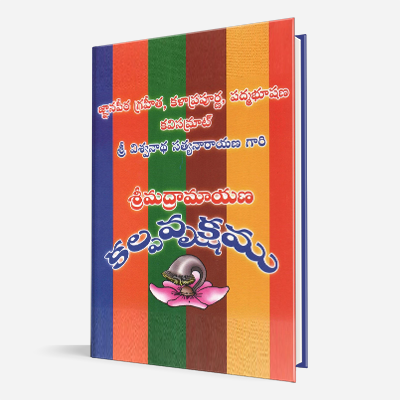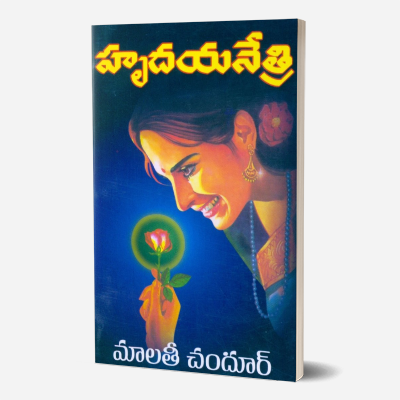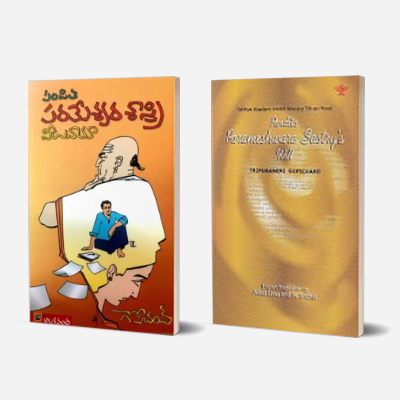Ramayana Kalpavriksham
By Viswanatha Satyanarayana
The Ramayana for Viswanatha, is not merely the story of Rama, the Divine Archer, but the story of the Indian psyche, its responses under trying circumstances, the triumph of the spirit over the matter, the supremacy of values over interests and the enthroning of Dharma as much in the hearts of men as in their affairs. It is legacy of values patterned beautifully in the very texture of the story of Rama and Sita. Values like humility, courtesy, love and respect to all, courage, beautifulness, truthfulness, single-minded devotion between spouses, impartiality, respectful devotion to parents and elders, and above all a need for sacrifice and self-abnegation. Viswanatha has followed Valmiki in the narration of the story, but he has made a few beautiful alterations. As we start reading the Ramayana Kalpavriksham, we are ushered into the classical Treta yuga by the magic of his diction, description and delineation. It received the Jnanpith Award in 1971.
About the Author
Viswanatha Satyanarayana (1895–1976) is regarded as one of the most important writers and poets of the Telugu canon. His oeuvre includes poetry, novels, drama, short stories and speeches, covering a wide range of subjects such as analysis of history, philosophy, religion, sociology, political science, linguistics, psychology and consciousness studies, epistemology, aesthetics and spiritualism. He was the first Telugu writer to receive Jnanpith Award in 1971. Viswanatha’s style of poetry was classical in nature and his popular works include Ramayana Kalpa Vrukshamu (Ramayana the wish-granting divine tree), Kinnersani patalu (Mermaid songs) and Veyipadagalu (The Thousand Hoods). He was also felicitated with the Padma Bhushan.
Also read
Ha Ha Hu Hu
Translated into English as Ha Ha Hu Hu: A Horse-headed God in Trafalgar Square by Velcheru Narayana Rao
Ha Ha Hu Hu tells the delightful tale of an extraordinary horse-headed creature that mysteriously appears in London one fine morning, causing considerable excitement and consternation among the city’s denizens. Dressed in silks and jewels, it has the head of a horse but the body of a human and speaks in an unknown tongue. When it shows a deep intelligence – unlike any they have encountered before – they don’t know how to deal with it, or how to explain the rules of their own civilisation (beyond caging it and demonstrating for its benefit that their guns can kill). Even a Sanskrit scholar, who realizes this might be a gandharva fallen to earth, is puzzled.
Vishnu Sharma English Chaduvu
Translated into English as Vishnu Sharma Learns English by Velcheru Narayana Rao
In this hilarious satire, the scholar Vishnu Sharma – who is believed to have written the Panchatantra – and the 13th century poet Tikanna (who translated the Mahabharata into Telugu) appear first in dream form, and later as flesh-and-blood humans, to a Telugu lecturer, requesting that he teach them English. The king of the gods, Indra himself, has asked them to return to earth to do this, so they can ‘get the education suitable for these days.’ But the lessons that follow prove confusing to both the students and their master. What follows is a series of absurdities about English, its grammar, the disjunction between the way it is written and spoken, and the comparable superiority of Sanskrit.


